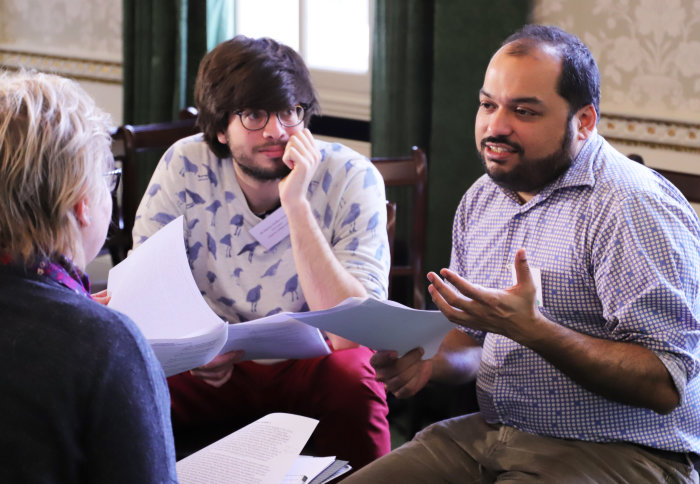Stronger collaborations with social sciences essential to tackling AMR

Workshop explores how social sciences methodologies can improve strategies to change antibiotic prescribing behaviours.
Attendees and experts from a range of disciplines came together earlier this month to discuss tackling antimicrobial resistance (AMR) through engagement with social science research methodologies.
The event was organised by researchers from NIHR Health Protection Research Units in Healthcare Associated Infections and Antimicrobial Resistance at Imperial College London and the University of Oxford. The workshop offered insights into how the latest social science research is currently being integrated into AMR strategies across various healthcare settings. It also provided an introduction to essential social science research skills used in two ongoing AMR research programmes (STEP-UP and ASPIRES), which are supported by the prestigious Economic and Social Research Council as part of the Antimicrobial Resistance Cross Council Initiative.
New perspectives
Professor Sarah Walker (University of Oxford and University College London) and Professor Alison Holmes introduced the event by highlighting the importance of engagement with the social sciences in developing effective strategies to tackle AMR. Attendees then heard from the event’s three keynote speakers - Professor Nick Sevdalis (King’s College London), Professor Helen Ward and Professor Julia E. Szymczak (University of Pennsylvania).
Professor Sevdalis – whose research focusses on implementation science, improvement science, and applied psychology – gave a presentation on the lessons learned from the implementation of previous public health interventions. He discussed the complexities of evaluation, and the different considerations that need to be made in order to determine whether or not an intervention has been a success. Professor Sevdalis also touched on the question of adaptability, and how to ensure that interventions could be tailored to different contexts without compromising their “core active ingredients.” He concluded by highlighting the value of implementation science in providing the language and concepts to facilitate the systematic roll-out of interventions.
In following, Professor Helen Ward – who established Imperial’s multidisciplinary Patient Experience Research Centre (PERC) – provided an overview of how and at which points researchers should seek to engage with social science disciplines when conducting translational research. Professor Ward emphasised the importance of collaborating with trained social scientists and respecting different disciplines in order to build strong, collaborative relationships.
Appearing via video link, Professor Szymczak concluded the keynote talks by highlighting the breadth and significance of social determinants in antibiotic prescribing. She outlined how drug prescribing should be understood as a highly social and clinical act in three main ways: i) as a means of communication, ii) as an expression of power and social control, iii) as a tool used by clinicians to navigate social challenges. In light of the numerous and complex social factors that influence prescribing, Professor Szymczak emphasised the importance of antimicrobial stewardship being supported from the ground up, rather than being imposed from the top down.
Developing skills
Attendees at the event also participated in two workshops, which introduced them to key social sciences research skills. Dr Esmita Charani, Dr Enrique Castro-Sanchez and Dr Raheelah Ahmad facilitated a session on ethnographic methods and face-to-face interviews, while Dr Geoff Wong (University of Oxford) and Dr Monsey McLeod gave an introduction to conducting a realist review.
“The workshop provided a fantastic opportunity for researchers and clinicians involved in research and implementation of interventions tackling AMR,” commented Dr Charani.
“The ethnographic methods workshop generated important discussions on the ethical issues that can arise and the importance and relevance of applying such methods to understand the context,” she added.
Dr McLeod commented: "Social science research is key to understanding our society and how human behaviours can influence the world around us, including the rate of development of AMR and how we can ameliorate this."
“This event allowed cross-pollination of research methods, findings and ideas – across disciplines, specialties, and countries – for tackling AMR. In particular, we were excited by the opportunity to share and introduce the realist synthesis approach we are using to better understand not only how and why an intervention works, but also for whom and in what contexts."
See more photos and opinions from the day via Twitter Moments
Article supporters
Article text (excluding photos or graphics) © Imperial College London.
Photos and graphics subject to third party copyright used with permission or © Imperial College London.
Reporter
Ms Genevieve Timmins
Academic Services







